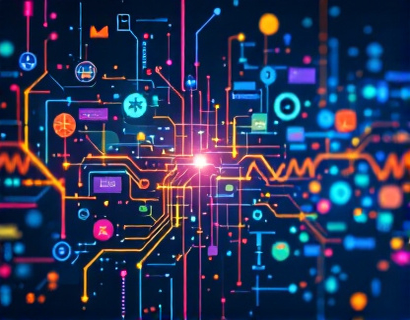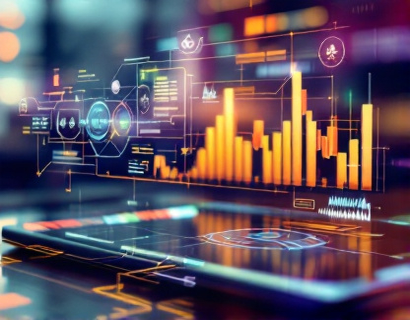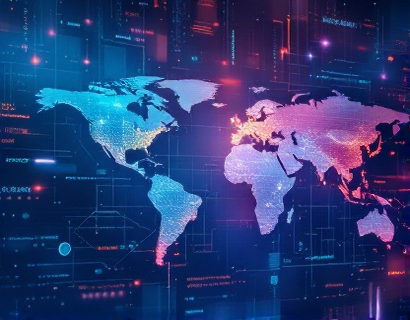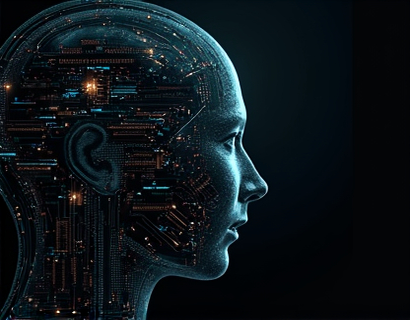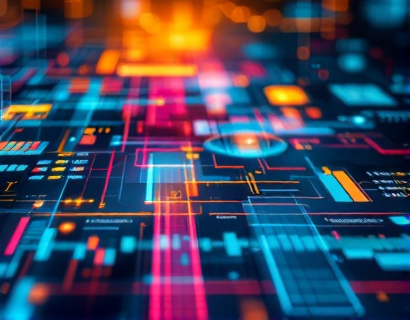Revolutionizing Digital Engagement: The Synergy of Crypto and AI
The intersection of cryptocurrency and artificial intelligence (AI) is ushering in a new era of digital transformation, one that promises to redefine how we interact with technology and each other. This fusion of technologies is not just about enhancing user experiences; it's about creating a more connected, secure, and efficient digital world. As we delve into the latest innovations, it becomes clear that the combination of crypto and AI is driving significant advancements in various sectors, from finance to healthcare, and beyond.
The Foundations of Cryptocurrency and AI
To understand the transformative power of merging crypto and AI, it's essential to first grasp the fundamentals of each technology. Cryptocurrency, often referred to as digital or virtual currency, operates on a decentralized network known as a blockchain. This technology ensures transparency, security, and immutability, making it an ideal foundation for various applications beyond just currency. On the other hand, AI involves the simulation of human intelligence processes by machines, particularly computer systems. These processes include learning (the acquisition of information and rules for using it), reasoning (using rules to reach approximate or definite conclusions), and self-correction.
The synergy between these two technologies begins at the data level. Blockchain's inherent transparency and security provide a robust framework for storing and managing large datasets, which are crucial for AI algorithms. AI, in turn, can analyze and derive insights from these datasets at speeds and accuracies unattainable by human analysts. This combination not only enhances the efficiency of data management but also opens up new possibilities for innovation.
Enhanced Security through Crypto and AI
One of the most significant benefits of integrating crypto and AI is the enhancement of security measures in digital environments. Traditional security protocols often rely on centralized systems, making them vulnerable to breaches and hacks. By leveraging blockchain technology, data can be distributed across a network of nodes, reducing the risk of a single point of failure. AI can further bolster security by detecting and responding to threats in real-time. Machine learning algorithms can identify patterns indicative of malicious activity, allowing for proactive measures to be taken before a breach occurs.
For instance, AI-driven security systems can monitor network traffic, user behavior, and transaction patterns to flag anomalies. These systems can adapt and learn from new threats, continuously improving their ability to protect sensitive information. This is particularly crucial in the realm of cryptocurrency, where the value of assets is paramount. By combining the decentralized nature of crypto with the advanced analytical capabilities of AI, users can enjoy a higher level of security and peace of mind.
Personalized User Experiences
The integration of AI in crypto applications is also revolutionizing how users interact with digital platforms. Personalization is a key area where AI shines, enabling systems to tailor experiences based on individual preferences and behaviors. In the context of cryptocurrency, AI can analyze user data to provide customized investment recommendations, risk assessments, and portfolio management tools. This level of personalization not only enhances user satisfaction but also increases the likelihood of better investment decisions.
For example, AI-powered chatbots can offer real-time support and guidance to users, answering queries and providing insights in a conversational manner. These chatbots can learn from user interactions, becoming more efficient and effective over time. Additionally, AI can facilitate seamless transactions by automating complex processes, reducing the need for manual intervention and minimizing the potential for human error.
Decentralized Finance (DeFi) and AI
Decentralized Finance (DeFi) is a prime example of how crypto and AI are transforming the financial landscape. DeFi platforms aim to create a financial system that is open, transparent, and accessible to everyone, without the need for intermediaries like banks. AI plays a crucial role in enhancing the functionality and reliability of DeFi protocols. Machine learning algorithms can optimize trading strategies, predict market trends, and manage risks more effectively than traditional methods.
One of the challenges in DeFi is the complexity of smart contracts, which can lead to vulnerabilities if not properly audited. AI can assist in the development and testing of smart contracts by identifying potential flaws and suggesting improvements. This not only enhances the security of DeFi platforms but also increases user trust. Furthermore, AI can facilitate the creation of more sophisticated financial instruments, such as decentralized derivatives and lending protocols, which can cater to a wider range of user needs.
Supply Chain Optimization with Crypto and AI
Beyond finance, the combination of crypto and AI is also making waves in supply chain management. The transparency and traceability offered by blockchain, coupled with the predictive analytics of AI, can significantly improve the efficiency and reliability of supply chains. By recording every step of the supply chain on a blockchain, stakeholders can have real-time access to accurate and tamper-proof data. AI can then analyze this data to optimize logistics, reduce costs, and minimize delays.
For instance, AI algorithms can predict demand patterns, optimize inventory levels, and streamline transportation routes. This not only reduces waste and improves resource allocation but also enhances the overall customer experience. In industries where supply chain disruptions can have severe consequences, such as pharmaceuticals and food production, the integration of crypto and AI can provide a robust solution to ensure product safety and availability.
Healthcare Innovations
The healthcare sector is another area where the synergy of crypto and AI is showing immense potential. Patient data management, drug development, and clinical trials are just a few areas where these technologies can make a significant impact. Blockchain can ensure the secure and private sharing of medical records, giving patients more control over their data while maintaining its integrity. AI can analyze vast amounts of medical data to identify patterns, predict disease outbreaks, and personalize treatment plans.
Crypto tokens can also be used to incentivize data contributors in blockchain-based health platforms, encouraging more individuals to participate in research and data sharing. This can lead to more diverse and comprehensive datasets, ultimately improving the accuracy of AI-driven medical insights. Additionally, AI-powered diagnostic tools can assist healthcare professionals in making more accurate and timely diagnoses, leading to better patient outcomes.
Challenges and Considerations
While the potential of combining crypto and AI is vast, there are several challenges and considerations that need to be addressed. One of the primary concerns is regulatory compliance. The crypto space is still largely uncharted territory from a regulatory perspective, and the integration of AI adds another layer of complexity. Ensuring that these technologies comply with existing laws and regulations, while also advocating for supportive frameworks, is crucial for their widespread adoption.
Another challenge is the technical expertise required to develop and maintain these systems. Both crypto and AI are complex fields that require specialized knowledge. Organizations looking to leverage these technologies must invest in skilled professionals or partner with experts to ensure successful implementation. Additionally, there is the issue of scalability. As the number of users and transactions grows, systems must be able to handle increased loads without compromising performance.
Future Prospects
Looking ahead, the future of crypto and AI is bright, with numerous opportunities for innovation and growth. As technology continues to advance, we can expect even more sophisticated applications that further blur the lines between these fields. The development of quantum computing, for example, could revolutionize both crypto and AI, offering unprecedented computational power and new ways to process and secure data.
Moreover, the rise of Web 3.0, a decentralized internet powered by blockchain technology, will create new avenues for crypto and AI to collaborate. In this ecosystem, users will have greater control over their data and online identities, with AI enhancing the security and functionality of decentralized applications. The potential for creating more autonomous and user-centric digital environments is immense.
In conclusion, the merging of cryptocurrency and artificial intelligence is not just a technological trend but a fundamental shift in how we approach digital interactions. By leveraging the strengths of both technologies, we can build more secure, efficient, and personalized systems that drive growth and engagement in the tech sector. As we continue to explore and harness this synergy, the possibilities for innovation and transformation are limitless.



